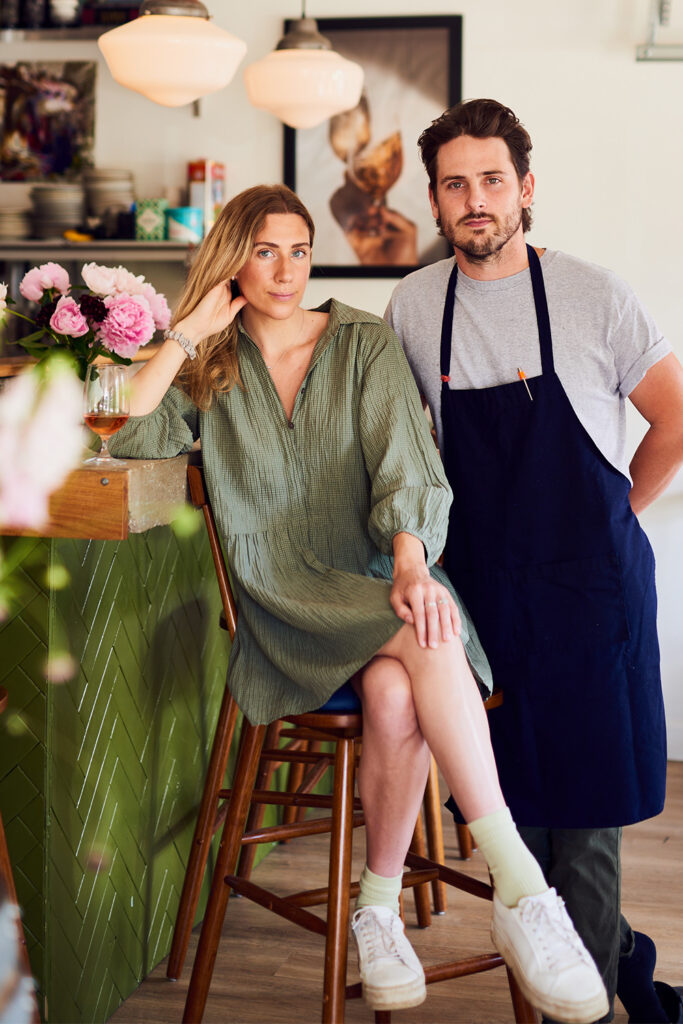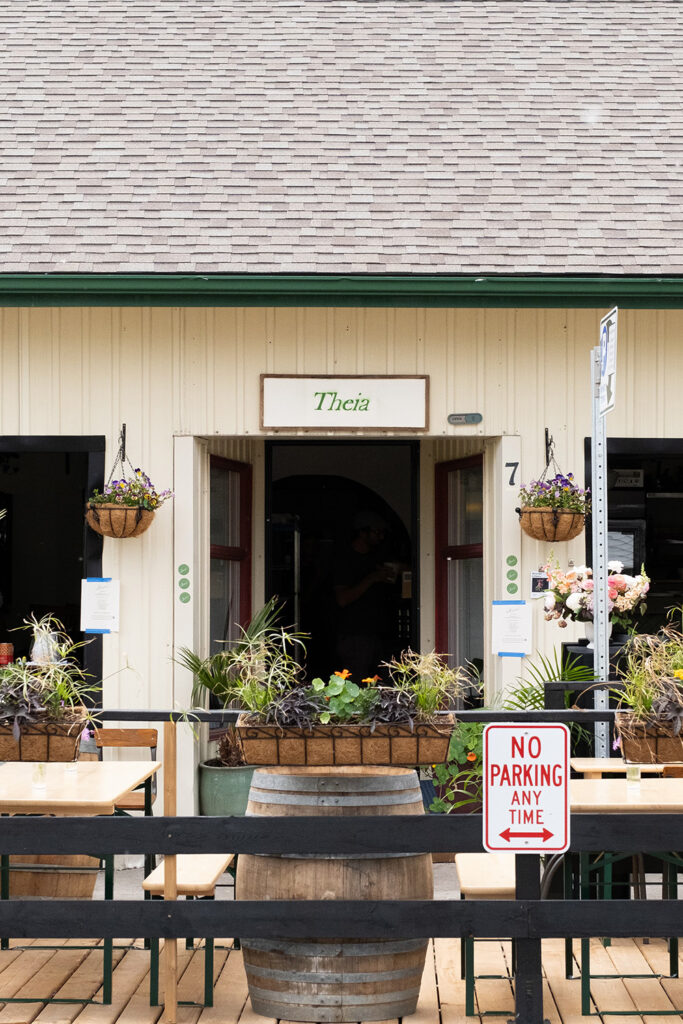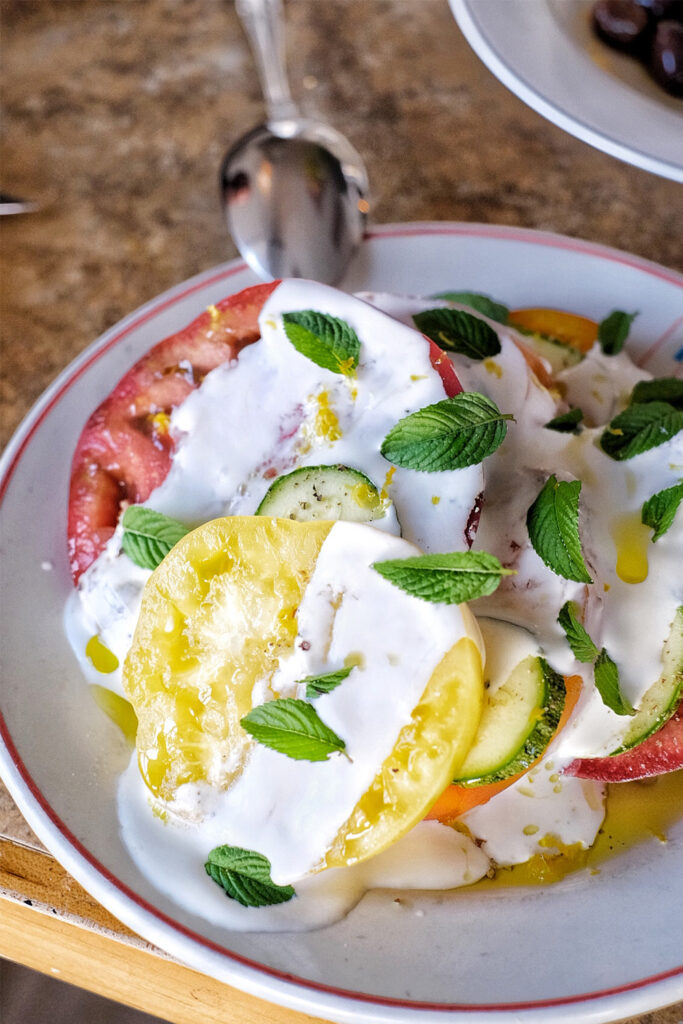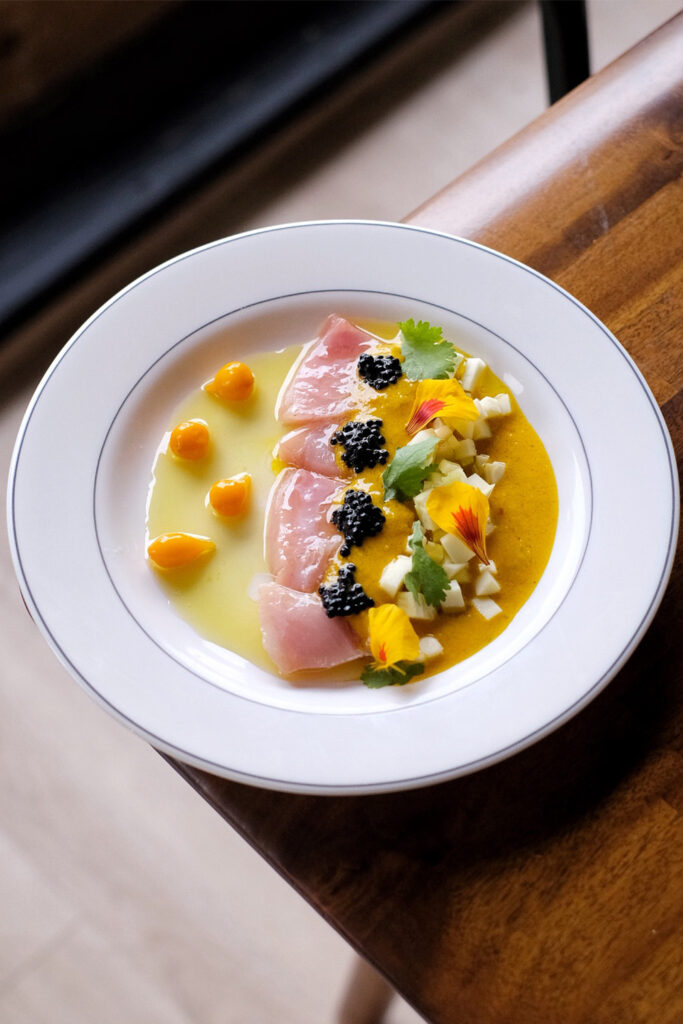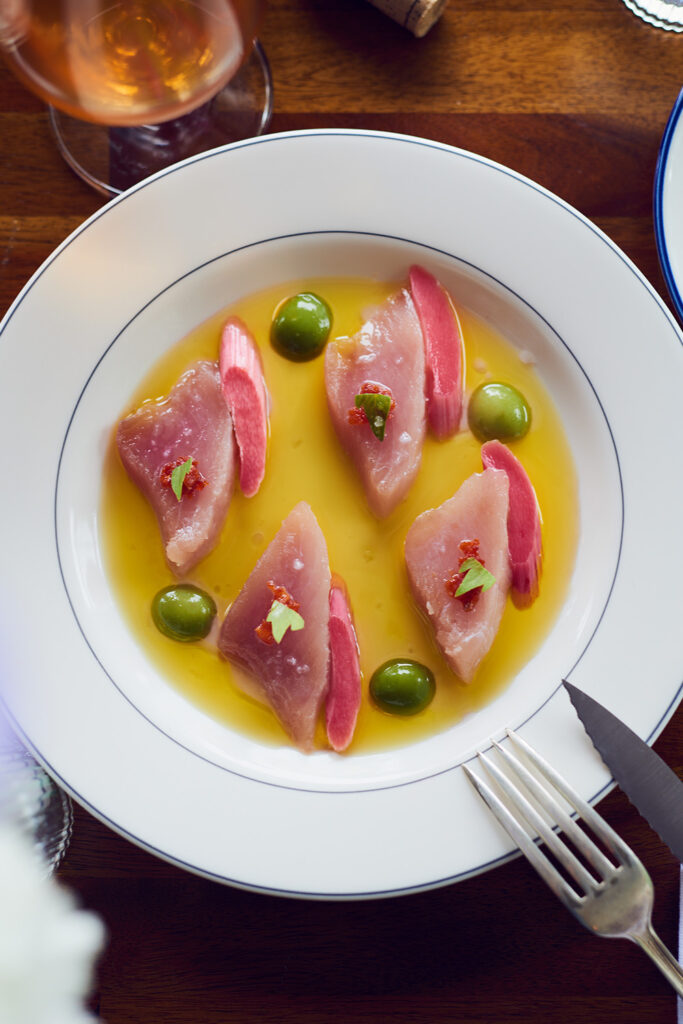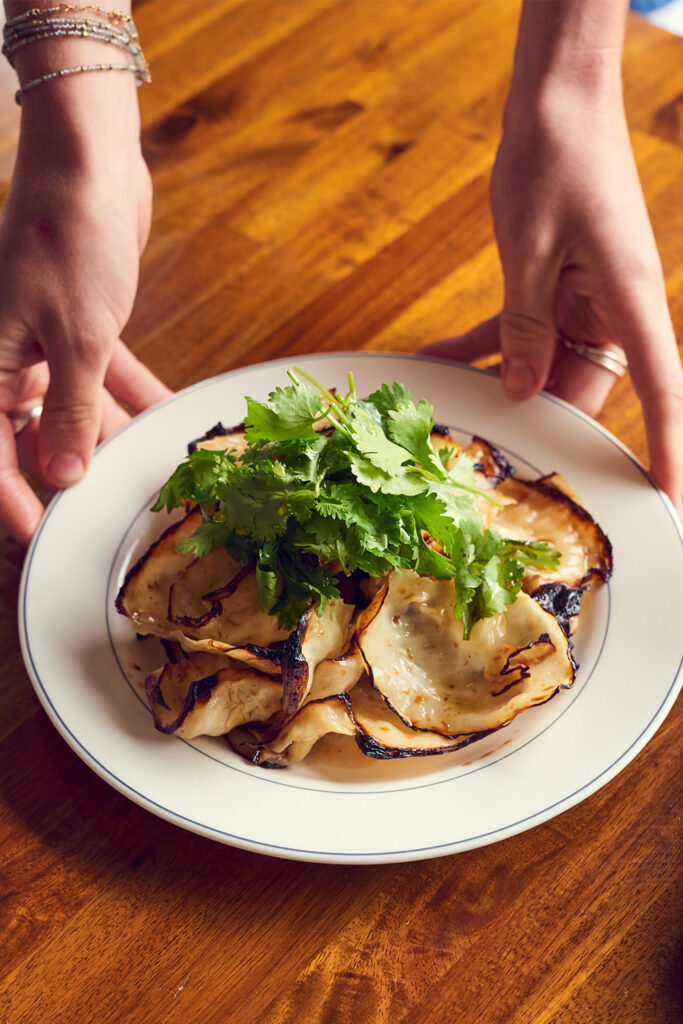About two years ago, the chef and sommelier Myles Harrison and his fiancé Margot Kenny left Toronto for a 10-acre farmhouse in Picton, a town of under 5,000 in Prince Edward County near Kenny’s brother. Harrison’s Ossington restaurant, Crosley’s and he was “in a bad spot,” he remembers. After a few detours in hospitality and landscaping, Harrison and Kenny toured the space at 7 Elizabeth Street, a former bar tucked off the town’s main drag against the county’s rolling hills. It was intimate and didn’t have a gas hookup, but, Harrison says, “I knew I could make something happen in there, and we just went with it.” A month later, Harrison and Kenny opened Theia, a seven-table wine bar and restaurant highlighting local, seasonal ingredients.
Theia specializes in low-intervention wine and dining. That means easy drinking, natural wines from around the world that aren’t too funky with food “on the fresher side,” Harrison says. “This will always be a wine bar on Elizabeth Street,” says Harrison. “The food is just meant to surprise you.” Turns out, the food more than surprises you. It delights and satisfies. The family-owned farm supplied the heirloom tomatoes in one dish; the greens accompanying our steelhead trout came from Harrison and Kenny’s garden. Our unctuous beef carpaccio, local cabbage spiced with cumin and chilli arbol paired perfectly with a sparkling rose from Quebec.
Become an S Insider
The latest in fashion, beauty, design, and arts & culture.
The space as honest and inviting as the food. In just a quick-and-dirty DIY renovation, Harrison built a concrete bar and built everything from scratch (except for the tables, which were inherited.) “I’ve helped build out many restaurants now, and I would never even think about trying to turn somebody around in that timeline,” says Harrison. “But we just had to.”
For Harrison, Theia is more than a restaurant. It’s a symbol of persevering through a tough time. The name came to him while watching an episode of the docuseries Our Universe. Morgan Freeman was narrating the story of Theia, an ancient planet that collided with Earth and laid the foundations for the natural world, including the seasons and climate which impact agriculture. Theia, then, represents “a happy accident,” he says, “in the sense that something catastrophic can give the most complex and beautiful thing that anyone could ever conceive.”
On my visit one evening in early July, the place was packed. The mood was convivial yet celebratory, just as Harrison and Kenny envisioned. “It’s a special place to come,” says Harrison. “The whole thing about this place is that we create an environment for you and someone you care about to take your walls down.”
Theia is open from Thursday to Sunday, 5 pm to late.
